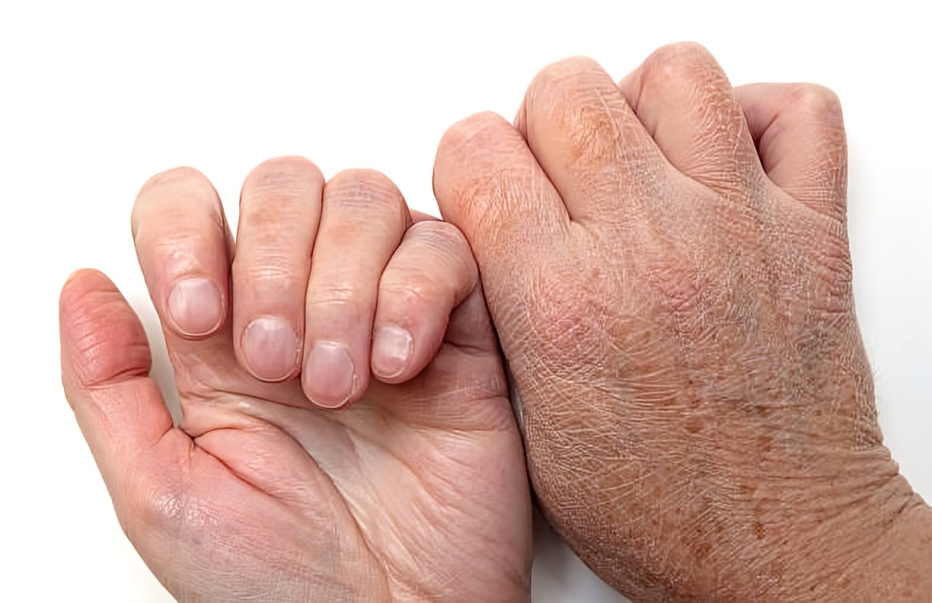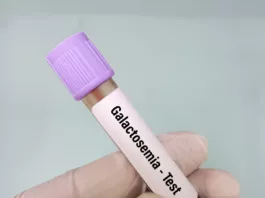Omega-3 Fatty Acid Deficiency occurs when you don’t consume enough of these essential fats in your diet. The body cannot produce omega-3 independently due to the lack of necessary enzymes, making dietary intake crucial. These fatty acids are vital for the normal functioning of organs such as the heart, brain, and eyes. A deficiency can reduce overall energy levels since omega-3s provide the necessary calories.
Role of Omega-3 Fatty Acids
Omega-3 fatty acids are essential unsaturated acids, and their intake benefits you in many ways. They help to reduce blood pressure, thereby reducing the risk of atherosclerosis (narrowing of your blood vessels). Omega-3s are also effective in decreasing the levels of triglycerides, which are linked to severe complications. Three crucial omega-3 fatty acids must be obtained through diet: eicosapentaenoic acid (EPA), docosahexaenoic acid (DHA), and alpha-linolenic acid (ALA). When you fail to provide your body with these essential unsaturated fatty acids, it reacts badly to their deficiency by decreasing good cholesterol (HDL) levels and increasing LDL and triglycerides. Hence, the deficiency causes cardiovascular, retinal, and neurological problems.
Causes of omega-3 deficiency
Omega-3 deficiency occurs when you fail to consume it through your healthy diet. Fish, salmon, and plant oils are essential in the diet and are a rich source of omega-3. People who prefer to eat only vegetables are more prone to be deficient in omega-3 fatty acids. It is also possible for some people to have omega-3 deficiency even if they are getting enough through their diet. It happens in the background of malabsorption issues, such as cystic fibrosis, which does not let omega-3 fatty acids absorb properly in your gut. Moreover, any gastrointestinal surgery may also affect the absorption of omega-3 fatty acids, leading to severe deficiency.1Dempsey, M., Rockwell, M. S., & Wentz, L. M. (2023). The influence of dietary and supplemental omega-3 fatty acids on the omega-3 index: A scoping review. Frontiers in nutrition, 10, 1072653. https://doi.org/10.3389/fnut.2023.1072653
Symptoms of omega-3 deficiency
The only source of omega-3 in your body is through diet, and when its levels do not reach the desired point, the deficiency starts to show its symptoms.
These are:
Hair changes
This deficiency affects the texture and moisture of your hair. As omega-3 fatty acids help to maintain normal moisture in your body, their deficiency leads to dryness in your scalp, which leads to itchy scalp and hair loss. It also makes your hair thin and dry. Moreover, the hair follicles might get inflamed due to dryness, also known to cause hair loss. If you are suffering from any hair problem, consider taking omega-3 supplements.2Guo, E. L., & Katta, R. (2017). Diet and hair loss: effects of nutrient deficiency and supplement use. Dermatology practical & conceptual, 7(1), 1–10. https://doi.org/10.5826/dpc.0701a01
Dry skin and eyes
Omega-3 deficiency makes your skin dry and flaky. Omega-3 fatty acids retain the moisture of your skin; when you lack these essential fatty acids in your diet, the moisture is lost. Severe skin dryness may lead to skin diseases like eczema, which usually starts near your lips and nose. Taking omega-3 supplements has been proven to reduce the dryness of your skin. When the overall moisture level is reduced in your body, it also affects the tear production in your eyes. It leads to dry and itchy eyes with mild discomfort. Long-term dryness of your eyes can also affect normal vision, and your eyes may become light-sensitive with a feeling of foreign body.3Lin, J. Y., Ma, L. J., Yuan, J. P., Yu, P., & Bai, B. X. (2023). Causal effects of fatty acids on atopic dermatitis: A Mendelian randomization study. Frontiers in nutrition, 10, 1083455. https://doi.org/10.3389/fnut.2023.1083455

Brittle nails
If you face problems like broken, dry, and brittle nails, you may have omega-3 deficiency. Maintaining healthy nails is one of the functions of omega-3, and its deficiency makes your nails dull and thin.

Joint problems
Omega-3 might have a minor role in reducing the inflammation in your joints, and its deficiency can lead to joint pain and stiffness. Taking omega-3 fatty acids in conditions like osteoarthritis and rheumatoid arthritis helps to reduce inflammation and pain.
Brain problems and sleep disturbance
Omega-3 deficiency may affect your brain as these fatty acids act as neuroprotective fats and aid in reducing brain inflammation. Moreover, omega-3 fatty acids are prescribed for severe conditions like Alzheimer’s, bipolar disorder, and dementia because they help to treat them in some way. When your body is deficient in omega 3, it becomes a risk factor for depression. Some neurological effects are also seen in patients with omega-3 deficiency, like weakness, pain in your legs, and not being able to walk. This deficiency weakens the memory-making function of your brain and makes it difficult for you to concentrate properly. All these factors combine and disturb your sleep quality and cause insomnia (lack of sleep).4Ross B. M. (2007). Omega-3 fatty acid deficiency in major depressive disorder is caused by the interaction between diet and a genetically determined abnormality in phospholipid metabolism. Medical hypotheses, 68(3), 515–524. https://doi.org/10.1016/j.mehy.2006.07.054
Heart problems
This deficiency affects the heart, increasing the heart rate higher than usual. This ultimately leads to arrhythmias, which can cause sudden cardiac death. It is essential to take omega-3 fatty acids for a coronary heart disease patient as they significantly reduce the risk of stroke, MI, and sudden cardiac death.5Jump, D. B., Depner, C. M., & Tripathy, S. (2012). Omega-3 fatty acid supplementation and cardiovascular disease. Journal of lipid research, 53(12), 2525–2545. https://doi.org/10.1194/jlr.R027904
Hemoglobinopathies
Some patients experience omega-3 deficiency associated with anemia and thrombocytopenia (low platelets in the blood). The reason behind anemia is not clearly understood, but studies show a specific relationship between omega-3 fatty acids and iron metabolism in the body. These hemoglobinopathies may result in the enlargement of the spleen.
Hearing loss
Hearing loss is not a common symptom of omega-3 deficiency. However, if you already have excessive ear wax, you may feel a mild change in your hearing ability. The presence of excessive ear wax might be due to omega-3 deficiency.6Jung, S. Y., Kim, S. H., & Yeo, S. G. (2019). Association of Nutritional Factors with Hearing Loss. Nutrients, 11(2), 307. https://doi.org/10.3390/nu11020307
Heavy menses
Omega 3 deficiency is seen in women experiencing heavy blood flow during their periods. They may benefit from taking omega-3 either through their diet or supplements.7Rahbar, N., Asgharzadeh, N., & Ghorbani, R. (2012). Effect of omega-3 fatty acids on intensity of primary dysmenorrhea. International Journal of Gynaecology and Obstetrics: the official organ of the International Federation of Gynaecology and Obstetrics, 117(1), 45–47. https://doi.org/10.1016/j.ijgo.2011.11.019
Tests to diagnose omega-3 deficiency
The signs and symptoms of this deficiency are specific, making it easy to diagnose. However, the following laboratory test confirms the deficiency in your body.
Omega-3 index:
The omega-3 index measures the amount of eicosapentaenoic acid and docosahexaenoic acid in your blood over four months but doesn’t measure the alpha-linoleic acid in your body. In addition to measuring the level of omega-3 fatty acids, the index also assesses the risk factor for several diseases, for instance, heart issues, Alzheimer’s Disease, and eye problems. You can check the omega-3 index by doing a finger prick and applying the blood to the omega-3 index kit. An index of less than 4% indicates a higher risk of having heart and brain diseases, while an index of more than 8% is safe for you. 8Harris W. S. (2010). The omega-3 index: clinical utility for therapeutic intervention. Current cardiology reports, 12(6), 503–508. https://doi.org/10.1007/s11886-010-0141-6
Treatment of omega-3 deficiency
A proper diet and supplements are the primary sources to compensate for omega-3 deficiency in your body.
Your diet must include the following items:
Plant sources
Plant sources contain one omega-3, which is alpha-linoleic acid (ALA). Sources are:9Nettleton J. A. (1991). Omega-3 fatty acids: comparison of plant and seafood sources in human nutrition. Journal of the American Dietetic Association, 91(3), 331–337.
- Chia seeds
- Walnuts
- Soya beans
- Spinach
- Flax seeds
- Brussels
- Canola oil
Animal sources
Eicosapentaenoic acid and docosahexaenoic acid are in the following animal sources:
- Salmon
- Eggs
- Fish
- Oysters
- Tuna

In addition to the diet, you can also take omega-3 supplements with your meals, which are a great source of coping with deficiency. These supplements are:
- Icosapent ethyl, two capsules per day, should be taken with meals.
- Omega-3 ethyl ester capsules
- Omega-3 carboxylic acid capsules
It is advisable to consult with a physician before taking omega-3 supplements. Omega-3 supplements should be cautiously used in patients with diabetes or hemoglobinopathies, as their excess increases bleeding time, making it difficult to control bleeding even after a minor injury.10Messamore, E., & McNamara, R. K. (2016). Detection and treatment of omega-3 fatty acid deficiency in psychiatric practice: Rationale and implementation. Lipids in health and disease, 15, 25. https://doi.org/10.1186/s12944-016-0196-5
Fruits containing Omega-3 Fatty Acids
You should consider adding the following fruits to your diet as they are a rich source of omega-3 fatty acids and help you to recover from symptoms:
- Oranges
- Kiwi
- Berries
- Avocados
- Papaya
How long does it take to recover from Omega-3 Deficiency?
Recovery from this deficiency entirely depends on the severity. Mild deficiency with minimal symptoms almost takes six weeks to recover fully. With severe symptoms, it might take six weeks to six months to completely recover from the deficiency and increase the omega-3 in your body to an average level.
Omega-3 Deficiency & Weight Gain
A common myth is that consuming fats increases weight. However, studies show that this is not entirely true. Taking healthy and essential fatty acids helps to boost immunity. This deficiency might cause belly fat. Adding omega-3 fatty acids to your diet prevents fat deposition and weight gain.
Conclusion
In conclusion, omega-3 becomes deficient in your body if you do not take it enough through your diet or supplements. If you are experiencing symptoms like thinning hair and nails, dry skin and eyes, and joint pain, you should consider checking the level of omega-3 in your body using the omega-3 index test. Take a diet containing omega-3 fatty acids, for instance, soya beans, chia seeds, fish, almonds, oranges, and avocados. Consider taking omega-3 supplements with your meals if the diet is insufficient to overcome the deficiency in your body.
Refrences
- 1Dempsey, M., Rockwell, M. S., & Wentz, L. M. (2023). The influence of dietary and supplemental omega-3 fatty acids on the omega-3 index: A scoping review. Frontiers in nutrition, 10, 1072653. https://doi.org/10.3389/fnut.2023.1072653
- 2Guo, E. L., & Katta, R. (2017). Diet and hair loss: effects of nutrient deficiency and supplement use. Dermatology practical & conceptual, 7(1), 1–10. https://doi.org/10.5826/dpc.0701a01
- 3Lin, J. Y., Ma, L. J., Yuan, J. P., Yu, P., & Bai, B. X. (2023). Causal effects of fatty acids on atopic dermatitis: A Mendelian randomization study. Frontiers in nutrition, 10, 1083455. https://doi.org/10.3389/fnut.2023.1083455
- 4Ross B. M. (2007). Omega-3 fatty acid deficiency in major depressive disorder is caused by the interaction between diet and a genetically determined abnormality in phospholipid metabolism. Medical hypotheses, 68(3), 515–524. https://doi.org/10.1016/j.mehy.2006.07.054
- 5Jump, D. B., Depner, C. M., & Tripathy, S. (2012). Omega-3 fatty acid supplementation and cardiovascular disease. Journal of lipid research, 53(12), 2525–2545. https://doi.org/10.1194/jlr.R027904
- 6Jung, S. Y., Kim, S. H., & Yeo, S. G. (2019). Association of Nutritional Factors with Hearing Loss. Nutrients, 11(2), 307. https://doi.org/10.3390/nu11020307
- 7Rahbar, N., Asgharzadeh, N., & Ghorbani, R. (2012). Effect of omega-3 fatty acids on intensity of primary dysmenorrhea. International Journal of Gynaecology and Obstetrics: the official organ of the International Federation of Gynaecology and Obstetrics, 117(1), 45–47. https://doi.org/10.1016/j.ijgo.2011.11.019
- 8Harris W. S. (2010). The omega-3 index: clinical utility for therapeutic intervention. Current cardiology reports, 12(6), 503–508. https://doi.org/10.1007/s11886-010-0141-6
- 9Nettleton J. A. (1991). Omega-3 fatty acids: comparison of plant and seafood sources in human nutrition. Journal of the American Dietetic Association, 91(3), 331–337.
- 10Messamore, E., & McNamara, R. K. (2016). Detection and treatment of omega-3 fatty acid deficiency in psychiatric practice: Rationale and implementation. Lipids in health and disease, 15, 25. https://doi.org/10.1186/s12944-016-0196-5





